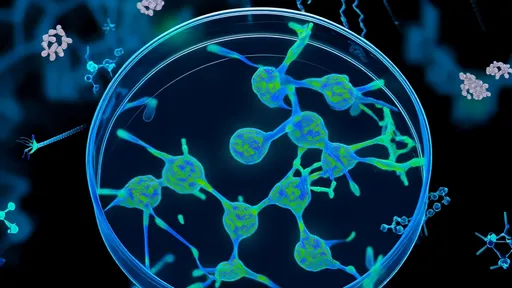In a landmark development for oncology, researchers have reported unprecedented success with a personalized cancer vaccine in treating melanoma, the deadliest form of skin cancer. The groundbreaking approach tailors each vaccine to the unique genetic makeup of a patient’s tumor, effectively training the immune system to recognize and destroy cancer cells. Early clinical trials have demonstrated remarkable efficacy, offering new hope for patients with advanced stages of the disease.
The concept of personalized cancer vaccines isn’t entirely new, but recent advancements in genomic sequencing and immunotherapy have propelled the technology into a transformative phase. Unlike traditional vaccines, which target common pathogens, these bespoke therapies are designed based on the specific mutations found in an individual’s tumor. By analyzing the tumor’s DNA, scientists can identify neoantigens—abnormal proteins produced by cancer cells—and incorporate them into a vaccine that primes the immune system to attack the tumor with precision.
Clinical Trial Results Turn Heads
Recent data from a Phase II trial involving patients with advanced melanoma has sent ripples through the medical community. Participants who received the personalized vaccine in combination with checkpoint inhibitors—a type of immunotherapy—showed significantly improved progression-free survival compared to those treated with standard therapies alone. Some patients even experienced complete remission, a rare outcome in late-stage melanoma cases. These findings suggest that the vaccine not only enhances the body’s natural defenses but also synergizes powerfully with existing treatments.
One particularly compelling case involved a patient whose melanoma had metastasized to multiple organs, leaving few viable treatment options. After receiving the personalized vaccine, scans revealed a dramatic reduction in tumor size, and the patient remains cancer-free two years post-treatment. Such outcomes, while still preliminary, underscore the potential of this approach to rewrite the playbook for cancer care.
The Science Behind the Breakthrough
The success of personalized cancer vaccines hinges on their ability to exploit the very mutations that make cancer cells dangerous. Each tumor accumulates a unique set of genetic alterations, many of which produce neoantigens invisible to the immune system under normal circumstances. The vaccine acts as a "wanted poster," exposing these neoantigens to immune cells like T-cells, which then hunt down and eliminate the tumor.
Creating these vaccines is a complex, multi-step process. After a tumor sample is biopsied, its DNA is sequenced to pinpoint mutations. Advanced algorithms then predict which neoantigens are most likely to trigger a robust immune response. These candidates are synthesized and formulated into a vaccine, typically administered via injection over several months. While the process is time-intensive—often taking weeks to complete—the payoff in targeted efficacy appears to justify the effort.
Challenges and Future Directions
Despite the excitement, significant hurdles remain. The personalized nature of these vaccines makes them expensive and labor-intensive to produce, raising questions about accessibility and scalability. Current costs could limit availability to specialized medical centers, exacerbating disparities in cancer care. Additionally, not all patients respond equally; factors like tumor mutational burden and overall immune health play critical roles in determining success.
Researchers are now exploring ways to streamline production, including automating parts of the sequencing and manufacturing processes. Others are investigating whether similar vaccines could be effective against cancers with lower mutation rates, such as prostate or pancreatic tumors. Combining these vaccines with emerging therapies like CAR-T cell treatment is another promising avenue.
A Paradigm Shift in Oncology
If larger trials confirm these early results, personalized cancer vaccines could herald a new era in melanoma treatment—one where therapy is as unique as the patient’s DNA. Beyond melanoma, the approach holds promise for a range of cancers, potentially transforming oncology from a one-size-fits-all model to a precision medicine framework. For now, the breakthrough offers a tantalizing glimpse of a future where cancer vaccines are a standard weapon in the arsenal against this relentless disease.
The road ahead is long, but for patients with melanoma and their families, the progress is nothing short of revolutionary. As one oncologist involved in the trials put it, "We’re not just treating cancer anymore. We’re teaching the body to cure itself."

By /Jul 25, 2025

By /Jul 25, 2025

By /Jul 25, 2025

By /Jul 25, 2025

By /Jul 25, 2025

By /Jul 25, 2025

By /Jul 25, 2025

By /Jul 25, 2025

By /Jul 25, 2025

By /Jul 25, 2025

By /Jul 25, 2025

By /Jul 25, 2025

By /Jul 25, 2025

By /Jul 25, 2025

By /Jul 25, 2025

By /Jul 25, 2025

By /Jul 25, 2025

By /Jul 25, 2025